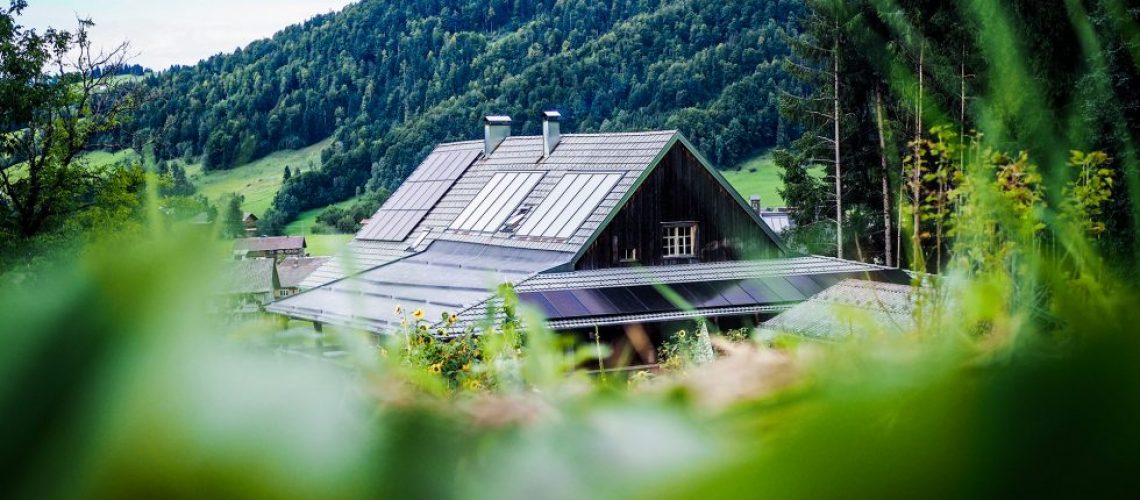One task that Mother Nature takes way too long to do is the conversion of sunlight into a usable form of energy for human consumption. What began with photosynthesis in plants millions of years ago resulted in the fossil fuels that we are trying to wean ourselves away from today.
What is Off-Grid Solar?
Only recently has the technology progressed to where solar panels can be part of that weaning process at a cost that is acceptable to the average consumer. For some, the desire to do completely away with their fossil fuel burning electrical supplier is too great to resist. And switching to an off-grid power system may appear to be the best way to reach the goal of a zero-power bill.
The term “off-grid” merely means that there is no connection with municipal or private power suppliers like Eversource or Cape Light Compact. That means no electric bill to pay each month. And like most things, this is easier said than done.
How does a Solar Power System Work?
The first need is sunlight and fortunately, the state of Massachusetts gets about 200 sunny days per year. Clouds will reduce a solar panel’s effectiveness and (duh) they don’t work at night.
The way a solar panel works begins with Photo Voltaic (PV) cells in the panels that convert the sunlight to Direct Current (DC). This is sent to an inverter to get the Alternating Current (AC) needed for most household use.
An on-grid system can still get power from the electric company fed through a meter that is logged every month by your friendly meter reader to determine your electric bill. Energy from your on-grid system ties into that meter and if the supply of power from the two sources exceeds the demand, the surplus is returned to the electric company. And yes, your meter will run in reverse. That might confuse the meter reader, but it saves the homeowner money.
How is an Off-Grid System Different?
Some people are surprised to learn that there are no additional financial rewards with an off-grid solar panel system. Your bill to the power company will be $0.00 but any excess power is not “redeemable”. Most local energy credits are limited to on-grid systems and you will need to check with your tax specialist as to what expenses are deductible with an off-grid system.
Any solar system will require the purchase of the panels, the DC-AC solar inverter, solar cables, and mounts. An off-grid system is a bit more complicated and will require additional items including:
- A battery bank: This takes the place of the utility company during cloudy weather, at night and through any periods with no sunlight. The time it can work between charges might vary so an extended period with no sun could prove to be stressful without a back-up.
- Charge Controller – This determines the amount of current to be sent to the batteries for optimum performance. It is a critical component as it protects the battery bank from overcharging.
- A backup generator or a backup source of power will create some ease of mind knowing that you have a fallback system in place. Some generators can be set up to kick in automatically when needed.
- Transfer Switch: This goes hand in hand with a backup power source. It is simply the way to switch between the solar system and your backup. They can be automatic or manual.
- AC Load Center: This is entirely optional but useful as a panel board with all the switches, fuses, and circuit breakers to maintain required AC voltage and current to corresponding loads.
- DC Load Center: Same as an AC Load Center; just substitute DC to the above item.
- Load Connection: This makes sure that the electrical circuit is complete allowing the flow of power.
Are There Other Cost Considerations?
The increased complexity and added parts mean that the installation cost of an off-line solar panel system can be several times the cost of the more common on-line systems. Anyone considering one will have to weigh the initial costs with the expected benefits.
Basic economics of supply and demand dictate that as solar panels become more available, the costs will decrease. But if everyone in Massachusetts decides to install a solar system at around the same time, the cost will rise, barring any technical breakthrough.
Purists may find the off-grid system more appealing, but most people will opt for an on-grid system. Whatever you choose, be sure to get the advice of a solar-panel expert for advice and it is highly recommended that any installation be done by a trained professional with experience and previous clients as references.


